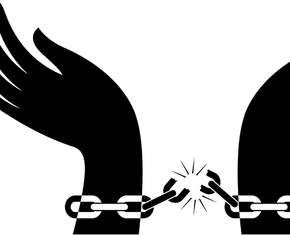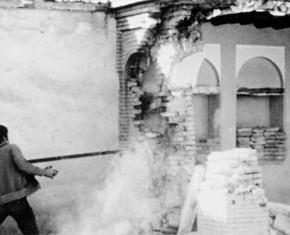This week marks the 150th anniversary of the arrival of Baha’u’llah in the Holy Land, the last banishment in a series of exiles decreed by two monarchs.
The Akka/Haifa area has since become the spiritual and administrative center of the Baha’i world, home to the global Baha’i community’s holiest sites.
“This exile was an act of oppression and injustice and persecution, but Baha’u’llah turned this act of oppression into a journey of humanity toward spirituality and freedom,” explains Nader Saiedi, Professor of Iranian Studies at University of California, Los Angeles. “This time becomes the main turning point in the mission of Baha’u’llah and, in a sense, a turning point in the cultural history of humanity.”
Baha’u’llah was banished from his homeland of Persia in 1853, initiating a series of exiles. The Persian and Ottoman governments thought that by sending Baha’u’llah to a far-off prison, they would extinguish the light of His religion:
Behold how in this Dispensation the worthless and foolish have fondly imagined that by such instruments as massacre, plunder and banishment they can extinguish the Lamp which the Hand of Divine power hath lit, or eclipse the Day Star of everlasting splendor. How utterly unaware they seem to be of the truth that such adversity is the oil that feedeth the flame of this Lamp! Such is God’s transforming power. He changeth whatsoever He willeth; He verily hath power over all things …. – Baha’u’llah, Gleanings from the Writings of Baha’u’llah, p. 72.
On 12 August 1868, Ottoman troops surrounded Baha’u’llah’s house in Edirne, known at that time as Adrianople, and authorities told him he was banished again. To where, they would not say. It was almost two weeks later, after Baha’u’llah and his companions had begun their journey, that they learned their destination: Akka, an ancient prison city in Ottoman Palestine, known also as Acre.
“Acre became for the Ottomans a place where, first of all, they had a prison for criminals, and then, a place for exile of all kinds of people who they thought should be watched over. The Baha’is were of that category,” explains Professor David Kushner, a historian who specializes in the Ottoman Empire.
Akka was a historic city that had passed through the hands of several civilizations and was once a prominent center in Ottoman Palestine. By 1868, however, the Ottomans used it as a prison colony, a desolate city where Baha’u’llah was sent to be forgotten:
Thus they chose the prison city of Akka, which was reserved for rebels, murderers, thieves and highway robbers, and in this wise they made [Baha’u’llah] associate with such people. But the power of God was made manifest, for this prison became the means of the promotion of His Faith and the glorification of His Word. The greatness of Baha’u’llah became apparent in that He succeeded, from within a prison and under such humiliating circumstances, in … overcoming His enemies, and in proving to all the resistless power of His Cause. His sacred teachings spread to all regions and His Cause was firmly established. – Abdu’l-Baha, Some Answered Questions, newly revised edition, pp. 36-37.
Thousands of Baha’is visit the Akka/Haifa area every year for pilgrimage, an act of devotion to the life and teachings of Baha’u’llah.
The Baha’i World News Service is publishing a series of podcasts about the 150th anniversary of Baha’u’llah’s arrival in the Holy Land. This brief article is the introduction to the first of the podcast episodes. Listen to the podcast here.
















Comments
Sign in or create an account
Continue with Googleor